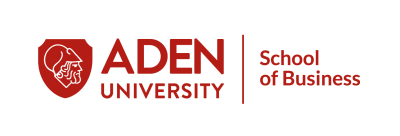
Master of Operations Management
ADEN University

Key Information
Campus location
Miami, USA
Languages
Spanish, English
Study format
Distance Learning
Duration
12 months
Pace
Full time
Tuition fees
Request info
Application deadline
Request info
Earliest start date
Sep 2024
Scholarships
Explore scholarship opportunities to help fund your studies
Introduction
The Master of Operations Management trains managers and business leaders to be more effective and efficient as project managers.
Gain a deeper understanding of how to apply modern, results-oriented operations management practices; as well as necessary tools to guarantee high performance standards.
Admissions
Curriculum
Operations Management
This course provides a comprehensive introduction to the objectives and functions of operations management. Importance of operations for increasing competitiveness, productivity, effectiveness and efficiency to the corporate value chain. Explores the relationship between operations and other areas of the company keys to achieve operational excellence Evolution of the different models of companies with best practices in operations.
Quality Controls and Continuous Improvement
This course explores quality as a business imperative. Considers different definitions and approaches to quality, quality Gaps. Quality and non-quality costs Postulates of the quality management and total quality management. Introduces models of excellence in management including the concepts and benefits of the application of ISO norms, BPM, HACCP, BRC and others. Reviews tools and processes of continuous improvement.
Logistics and Supply Chain Management
This course explores in-depth strategies for logistics and supply-chain management. Analyzes competing theories, managing customer expectation pre and post-transactions. Defines modern logistics management models, reviews best practices from merchandise and stock management to the effective talent management for logistics and supply chain management.
Lean Operations Management
This course reviews the functions and objectives of production management under lean management principles. Explores the paradigm shift: from Fordism to the Toyota manufacturing system and the benefits of lean practices and waste reduction. Explores the polyvalence of workers, teamwork, systems suggestion schemes, effective communications and effective management meetings and other tools to optimize operations with lean thinking.
Lean Strategy Implementation
This course takes lean operations strategies in-depth with case review of application of lean management principles reviewed in Lean Operations Management. Explores the challenges of adapting to lean operations.
Advanced Operations Strategies
This course reviews the support and commitments required for advanced operations strategies including Six Sigma principles and implementation Student gain understanding of the relationships between maintenance mission strategies and functions: reliability, availability and maintainability. Explores current approaches to maintenance. TPM. SMED. Kanban. Poka Yoke. Benchmarking implementation of LEAN management tools.
Service Optimization and Human Capital
This course underscores the importance of human capital in services optimization. Empowerment, delegation, Negotiation, teamwork. Techniques to avoid and resolve conflicts. Recruitment and induction of persons. Features of training programs to optimize results. Explores conventional vs. best practices, risk. Salary alignment for compliance results. Compliance and control of human capital. Customer education and service cycle. Quality standards in the provision of service delivery in globalization.
Operations Performance
This course associates operations strategy with financial performance. Analyzes the value of applied to the business accounting information. Importance of budgets, costs, financial leverage as factors in operations performance. Explores the use of management technology as a competitive advantage. Reviews implementation of an ERP, application of MRP and communications strategies.
Creating Value through Operations
The course considers Operations within the context of business strategy and the creation of value. Analyzes the interaction of operations with other departments (human resources, marketing and finance. IT, sales, etc.). Internal Feedback. Critical and strategic thinking for operations professionals.
Digital Transformation
From analog to digital, the transformation from a traditional company to a digital company, and its impact on the business. New trends, models and the development of a digital revolution within an organization that promotes change and focuses on the client.
Business Simulation
The objective is to deepen the understanding and knowledge of the complexity of business operations in a dynamic and competitive environment. The game pushes the teams to compete and make decisions in an ever-changing environment. The participants develop and execute strategies for their simulated business.
Final Project
The students will work with the professor to develop a business project where they will apply the theory learned during the Master’s program in a specific case of a business, it can either be a project within a specific area in an already working business or the development of a new business.
Program Outcome
Upon completion of the Master of Science in Operations Management at ADEN University students will be able to:
- Develop new tools to improve operations management in organizations.
- Design efficient strategies within the Operations area to improve productivity ratios.
- Create processes and activities for Production to align the product offer with the market demand.
- Evaluate different models of operations management to increase the speed of change in organizations.